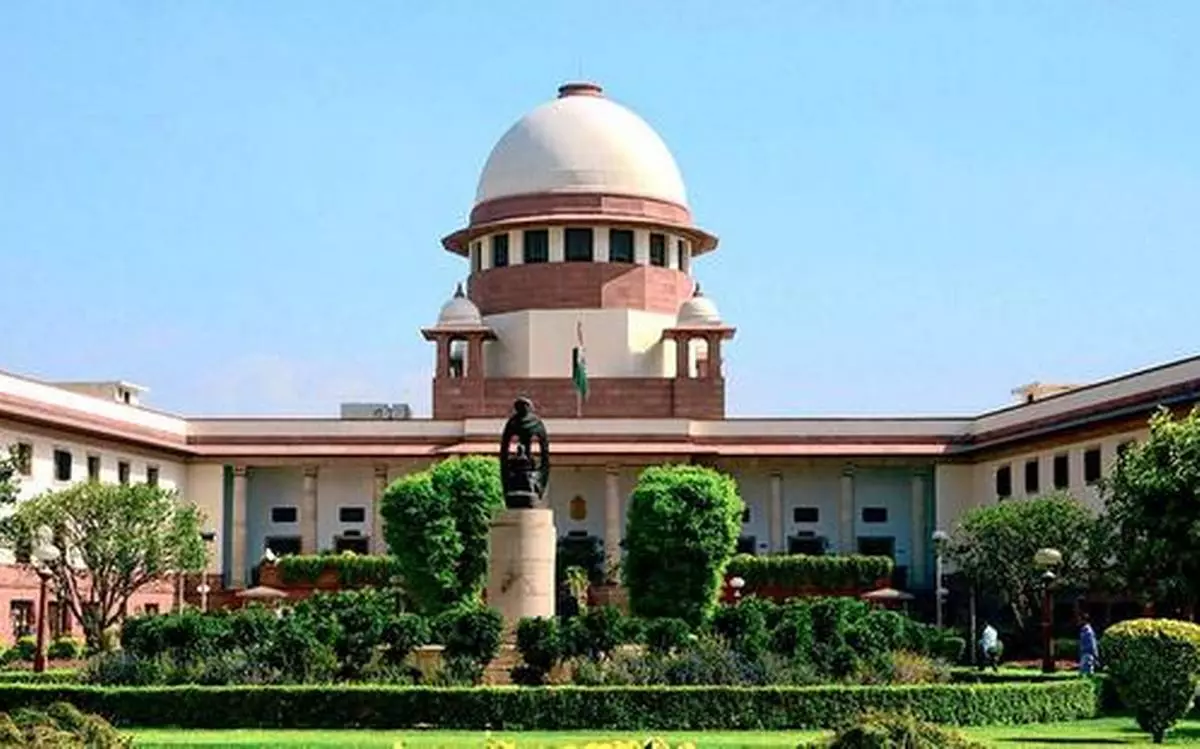
SC orders installation of CCTVs at CBI, NIA, ED offices
text_fieldsNew Delhi: In a significant order, the Supreme Court of India on Wednesday said whenever there is information of force being used at police stations resulting in serious injury and/or custodial deaths, it is necessary that persons be free to complain for redressal.
Against this backdrop, the top court directed the Centre to install CCTV cameras and recording equipment at the offices of investigating agencies like the National Investigation Agency, the Central Bureau of Investigation, the Enforcement Directorate, the Directorate of Revenue Intelligence, the Narcotics Control Bureau etc - which have the power of arrest and to carry out interrogations.
A bench, headed by Justice R. F. Nariman and comprising Justices K. M. Joseph and Aniruddha Bose, said: "As most of these agencies carry out interrogation in their office(s), CCTVs shall be compulsorily installed in all offices where such interrogation and holding of accused takes place in the same manner as it would in a police station."
The top court emphasised that CCTV systems that have to be installed must be equipped with night vision and must necessarily consist of audio as well as video footage. Most important of all, it said, is the storage of CCTV camera footage which can be done in digital video recorders and/or network video recorders.
"CCTV cameras must then be installed with such recording systems so that the data that is stored thereon shall be preserved for a period of 18 months," the court added.
In 2018, the apex court had ordered installation of CCTV cameras in police stations to check human rights abuses.
The bench noted that till November 24, 14 state governments and two Union Territories filed compliance affidavits and action taken reports, but a majority of these reports failed to disclose the exact position of CCTV cameras at each police station.
"The affidavits are bereft of details with respect to the total number of police stations functioning in the respective state and Union Territory; total number of CCTV cameras installed in each and every police station; the positioning of the CCTV cameras already installed; working condition of the CCTV cameras; whether the CCTV cameras have a recording facility, if yes, then for how many days/hours, have not been disclosed," it observed.
The top court issued slew of directions to streamline the management of CCTVs installation and to review footage for human right violation by the central oversight body (COB) and state level oversight committee (SLOC).
"The SHO (of each police station) should also be made responsible for CCTV data maintenance, backup of data, fault rectification etc. The state and Union Territory governments should ensure that CCTV cameras are installed in each and every police station functioning in the respective state and/or Union Territory. Further, to ensure that no part of a police station is left uncovered," said the top court.
The top court said the SLOC and the COB (where applicable) shall give directions to all police stations, investigative/enforcement agencies to prominently display at the entrance and inside the police stations/offices of investigative/enforcement agencies about the coverage of the concerned premises by CCTV.
"This shall be done by large posters in English, Hindi and the vernacular language. In addition to the above, it shall be clearly mentioned therein that a person has a right to complain about human rights violations to the National/State Human Rights Commission, Human Rights Court or the Superintendent of Police or any other authority empowered to take cognizance of an offence," it said.
The top court ordered that affidavits will be filed by the Principal Secretary/Cabinet Secretary/Home Secretary of each state/Union Territory, giving the Court a firm action plan with exact timelines for compliance with order within a period of six weeks.























